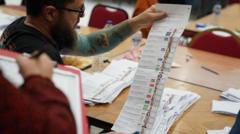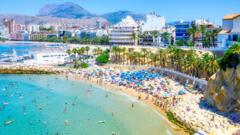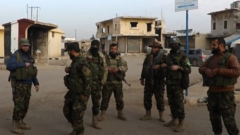Irish General Election: A Tight Three-Way Battle Emerges
The Irish general election has reached a critical stage, with two-thirds of parliamentary seats filled and a close competition between the top three political parties. Fianna Fáil leads with 21.9% of first preference votes, followed by Fine Gael at 20.8% and Sinn Féin at 19.0%.
So far, 123 of 174 seats have been allocated, with counting continuing. The election saw a historically low voter turnout of 59.7%, the lowest in over a century. The leaders of the three main parties – Micheál Martin (Fianna Fáil), Simon Harris (Fine Gael), and Mary Lou McDonald (Sinn Féin) – have all been re-elected to the Dáil (Irish parliament).
Other notable re-elected party leaders include Labour’s Ivana Bacik, Social Democrats’ Holly Cairns, and Independent Ireland’s Michael Collins. The Green Party’s Roderic O’Gorman was the only Green Party leader to retain his seat, noting that transfers from former coalition partners were minimal.
The current political landscape suggests potential government formation scenarios. Fianna Fáil and Fine Gael, who were previously in a coalition government, appear well-positioned to continue their partnership. Political analysts predict they could secure over 80 seats, approaching the 88-seat majority needed in the Dáil.
Sinn Féin is also eager to be part of the next government but faces significant challenges. Predictions suggest they might secure around 40 seats, which is insufficient for a majority. The party would need to seek support from smaller parties and independents, a complex negotiation process.
Both Fianna Fáil and Fine Gael have expressed reluctance to collaborate with Sinn Féin, citing fundamental policy differences. This stance further complicates potential government formation.
The election also featured some interesting individual stories, such as independent candidate Gerry Hutch’s unsuccessful bid in Dublin Central. Despite receiving over 3,000 first-preference votes, Hutch was ultimately defeated by Labour’s Marie Sherlock through a series of candidate transfers.
Experts believe that negotiations to form a new government could extend beyond Christmas and into the new year, given the intricate political landscape and the need for complex coalition-building.
The election highlights the fragmented nature of Irish politics, with multiple parties and independents playing crucial roles in potential government formation. The final composition of the government remains uncertain, with various scenarios possible depending on ongoing negotiations and seat allocations.
As counting continues, political observers are closely watching how the remaining seats will be distributed and what implications this might have for the next government of Ireland.




